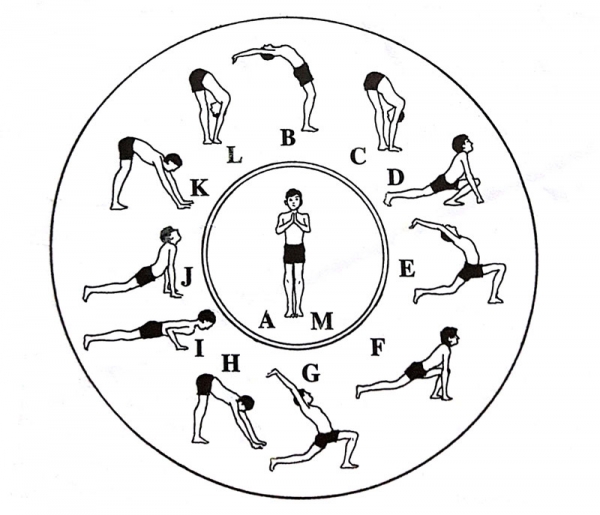Let’s face it, our modern lifestyles are not all that conducive to a calm and relaxing morning. Global working, connected devices, and full schedules can lead to an always-on mentality, meaning that personal health and wellness practices are often left to one side.
So, to reintroduce a little more balance to your daily routine, here are the internet’s eight most popular tips, habits, and recommendations for starting your day feeling ready and refreshed.
Top of the list is a somewhat counterintuitive tip for waking up refreshed: never lounge in bed or try to steal an extra ten minutes of sleep. While enticing, prolonging the wake-up process (sleep inertia, as it’s medically known) can train the body to become more accepting of fragmented sleep behaviors. The more fragmented your sleep, the more time you spend in sleep inertia—that feeling of grogginess and sluggishness upon waking up.
The aim here is to consolidate sleep into as much of a single block as possible, creating clear divides between sleep and wake behaviors, as this comparative study from the journal Sleep describes.
2. Hydrate before you caffeinate
A study from The Journal of Nutrition, examining the effects of morning dehydration on women, showed that going without a drink can significantly affect your chances of experiencing fatigue-inertia, mood disturbance, concentration, and headaches.
While the kinds of mild dehydration we experience in an average week are not normally a threat to health, not drinking enough does affect mood, and the mornings are typically when we’ve gone the longest without drinking.
To combat this and elevate your morning moods in the process, try making a glass of water the first thing you consume after waking. Many websites recommend adding lemon juice to the water, with Cleveland Clinic claiming that citric acid aids digestion and prevents oxidation.
3. Find a daily exercise routine that compliments your lifestyle
 Social media influencers can often be found starting their days with hour-long yoga sessions or wild lake swims—and while that might be aspirational, most of us simply don’t have the time or resources to join them. That doesn’t mean, however, that morning stretching and exercise isn’t beneficial to your mood, or that you can’t find a routine that works for you.
Social media influencers can often be found starting their days with hour-long yoga sessions or wild lake swims—and while that might be aspirational, most of us simply don’t have the time or resources to join them. That doesn’t mean, however, that morning stretching and exercise isn’t beneficial to your mood, or that you can’t find a routine that works for you.
The sun-salutation (or Surya Namaskar) is a fundamental series of yoga stretches that are easy to learn and slot into even the busiest of mornings. While there are various kinds of sun salutation, most include stretches for the lower back, shoulders, and neck—all places that tighten during sleep, and can thereby contribute to a grumpy morning.
Here’s a simple sun salutation instruction routine chart. Each pose should be accompanied by a deep inhalation or exhalation, helping to pace yourself. Repeat as many times as you like.
4. Adopt an energizing, anti-inflammatory diet
A significant amount of our daily energy is spent on digesting food. In fact, it’s estimated that around 10 percent of the calories you consume are spent simply in absorbing that energy into the body.
As a result, the more you can do to match your food intake to your body’s specific dietary preferences, the more energy you’ll have in the morning, to use on other things. Try to avoid heavy carbohydrates as a breakfast choice. While a bowl of oatmeal or a plate of toast are definitely popular choices, go for a modest portion size, which doesn’t ask your body to spend the morning hours working through your meal.
5. Sort out your bedtime routine
As a general rule, the better your bedtime routine, the higher the chance of a pleasant, calm morning. At the more extreme end of things, we all know what staying out late and drinking a little too much can feel like the next day. But apply that thinking more widely, and it becomes clear that your choices in the evening have a direct correlation to your morning mood.
A 2016 TIME article that talked to sleep experts from NYU and Stanford recommends looking at six key areas of your bedtime routine, if you’re interested in a brighter morning. These include taking time to relax, without resorting to light-emitting devices. Creating clearer divides between work time, evening, and bedtime helps your body to understand what’s expected of it and any given point in the day.
6. Use one alarm, every day
Just as the first tip on this list warns against habituating your body for fragmented sleep, varying your wake up time can have a similarly disruptive effect on your circadian rhythm. If you regularly lie in until mid-morning on the weekends, while rising for a six a.m. alarm on Mondays, you’re effectively asking your body to deal with the same situation as jetlag, except on a weekly basis.
The same principle goes for bedtimes, as well. WebMD acknowledges that it may not be possible for you to go to bed at exactly the same time every night, but in general, you should be aiming to keep your bedtimes within a 45-minute window or so.
7. Make sure you’re genuinely ready to sleep by bedtime
A surefire way of waking up with discomfort is to go to bed when you’re not really that tired. As anyone with young children can attest, a day spent lounging, napping, and watching Disney can easily lead to tantrums and frustrations when it’s time for light’s out.
The same applies to adults, although (hopefully) in a less dramatic way. A day spent outside, engaged in physical activities, helps to regulate melatonin levels in the body, as well as burn off any excess energy. Being active to the point where you feel ready for some rest and sleep can be great for anxieties too, letting you indulge in a restful evening, knowing that you’ve given your all that day.
This is yet another tip that reinforces the need to create boundaries in your sleep-wake cycle, showing just how important it can be to stay active during the day, and to save sleep and rest for the evening and nighttime.
8. Don’t fixate on sleep
Anecdotal evidence is pretty clear on the negative effects of obsessing over how many hours you’re getting each night. Generally, the more you fixate and worry about good sleep, the less good sleep you get. Sure, it’s important to spend time implementing practices like those listed above—but as long as you are taking those steps, it’s important to let go, relax, and trust that your relationship with sleep will improve over time. Good morning!





